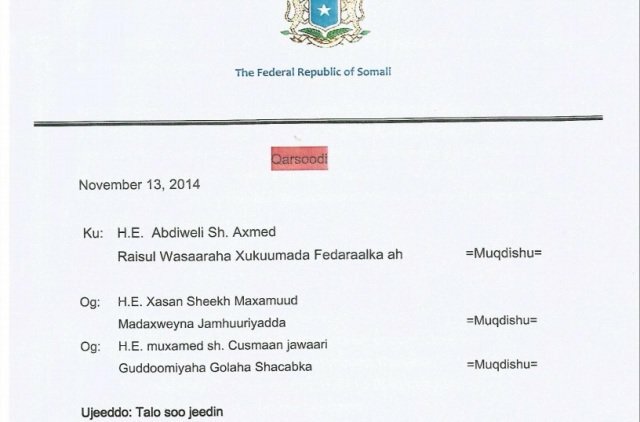Somali Camel Trade in Danger
 THE Saudi economy may run into problems if the MERS virus — which has killed hundreds of people in the kingdom — is scientifically proven to have been carried by camels imported from the Horn of Africa, particularly Somalia. The country may ban the import of all such cattle.
THE Saudi economy may run into problems if the MERS virus — which has killed hundreds of people in the kingdom — is scientifically proven to have been carried by camels imported from the Horn of Africa, particularly Somalia. The country may ban the import of all such cattle.
The kingdom has been battling to overcome the Middle East Respiratory Syndrome virus for quite some time.
Saudi Arabia is the biggest market for livestock from the region, with at least 70pc of Somali exports going to the kingdom. The rest mostly go to other Arab states such as the United Arab Emirates, Yemen, Qatar and Egypt. Somalia exported about 4.7m animals in 2013. There has been much speculation about the link between the coronavirus and camels, which prompted local scientists to investigate the matter. Results are expected any time now.
The question is, which countries can fill the gap if the ban on camel imports from Africa goes in effect? Pakistan, with the sixth largest camel population in the world, has the potential to fill the gap and become a significant exporter of camels, and their meat and milk.
Pakistan may be able to fill the gap if Saudi Arab bans camel imports from Somalia. There is a great demand for the export of live animals from Pakistan to the Middle East, but it is subject to official policy under which exports of animals are banned every now and then by the government
But the problem is that the concerned authorities have never given a serious thought to this potential, and the result is that most of the camels are smuggled out of the country and sold in Iran and Gulf countries at low prices.
Pakistan may not have much to export to Arab countries, but the royal families there are certainly interested in its camels, goats, buffaloes, bulls and cows. In 2009, 16 royal families from Saudi Arabia, UAE, Oman, Bahrain and Qatar imported over 3,000 animals on a non-commercial basis, the National Assembly was informed during its question hour session on August 10. A majority of the animals, mainly camels, were imported by various families of Saudi Arabia.
Pakistan is considered the cradle of animal genetic resources, and camel is one of them. It is home to more than 20 breeds of camel, which live in various habitats and ecosystems.
There is a great demand for export of live animals from Pakistan to Middle Eastern countries and Afghanistan, but it is subject to official policy under which exports of animals are banned every now and then by the government.
For instance, on October 1, 2013, the Economic Coordination Committee of the cabinet imposed a ban on commercial export of live animals. Before the ban took place, a total of 8,995, buffaloes/cattle and 4,880 sheep/goats were exported from July to September 2013, mostly to Arab countries. Besides, 58,730 metric tonnes of meat and meat preparations were exported during July-March 2013-14.
The size of the global camel population is over 19m. In 2013-14, the number of camels stood at one million, which has been the same for the last three years. But camel milk, whose demand is on a slight increase, was 851,000 tonnes in 2013-14. Balochistan has the largest population of camels, having 36pc of the country’s total.
The global trade in camel meat is worth $10bn and that of camel milk is worth $7bn. The global trade in these two commodities is very small, and the World Trade Organisation lists them as ‘negligible’.
Former Punjab livestock minister Mumtaz Minhas recently said, “The meat, as well as the milk of white camels, is revered in the Arab world and is sold at high prices. We have the potential to export them to these countries and earn hefty foreign exchange”.
The UN Food and Agriculture Organisation data on national camel stocks showed Somalia had 7m camels in 2012, against 260,000 in Saudi Arabia. Experts say if Saudi Arabia does ban imports from Somalia, it could have an adverse impact on its economy. A previous Saudi ban on Somali livestock exports in 2000 on similar grounds had badly affected the economy. The ban was lifted in 2009.
For African traders, the peak export season has only just started. Most shipments are made on the eve of Eid-ul-Azha. However, it will soon become clear what shape the trade will take this time.
The sale of camel meat in Saudi cities plummeted after the acting health minister advised residents not to consume camel meat and milk as a preventive measure against the MERS coronavirus. Livestock traders say the impending ban may cause a 50pc decline in prices of camel. But there is simply no major market for camel meat anywhere in the world except Arab countries, at least not of a size to justify a government-sponsored export strategy.
Published in Dawn, Economic & Business
Comments
comments
 Calendar
Calendar




































